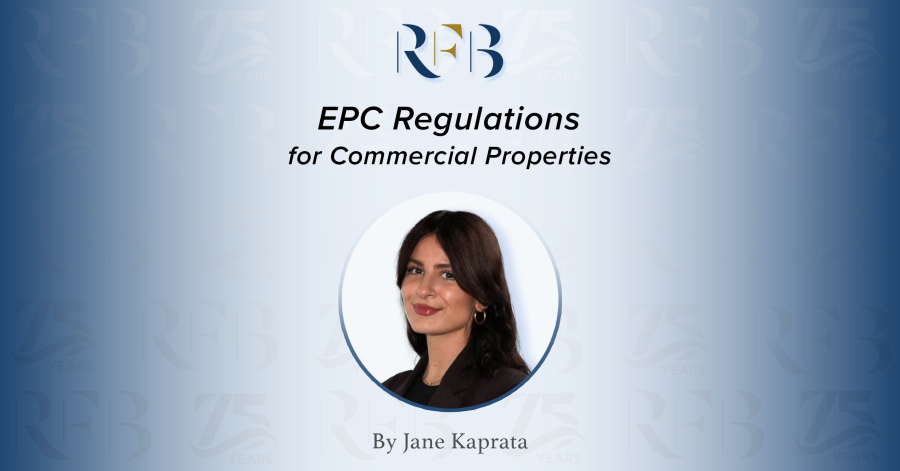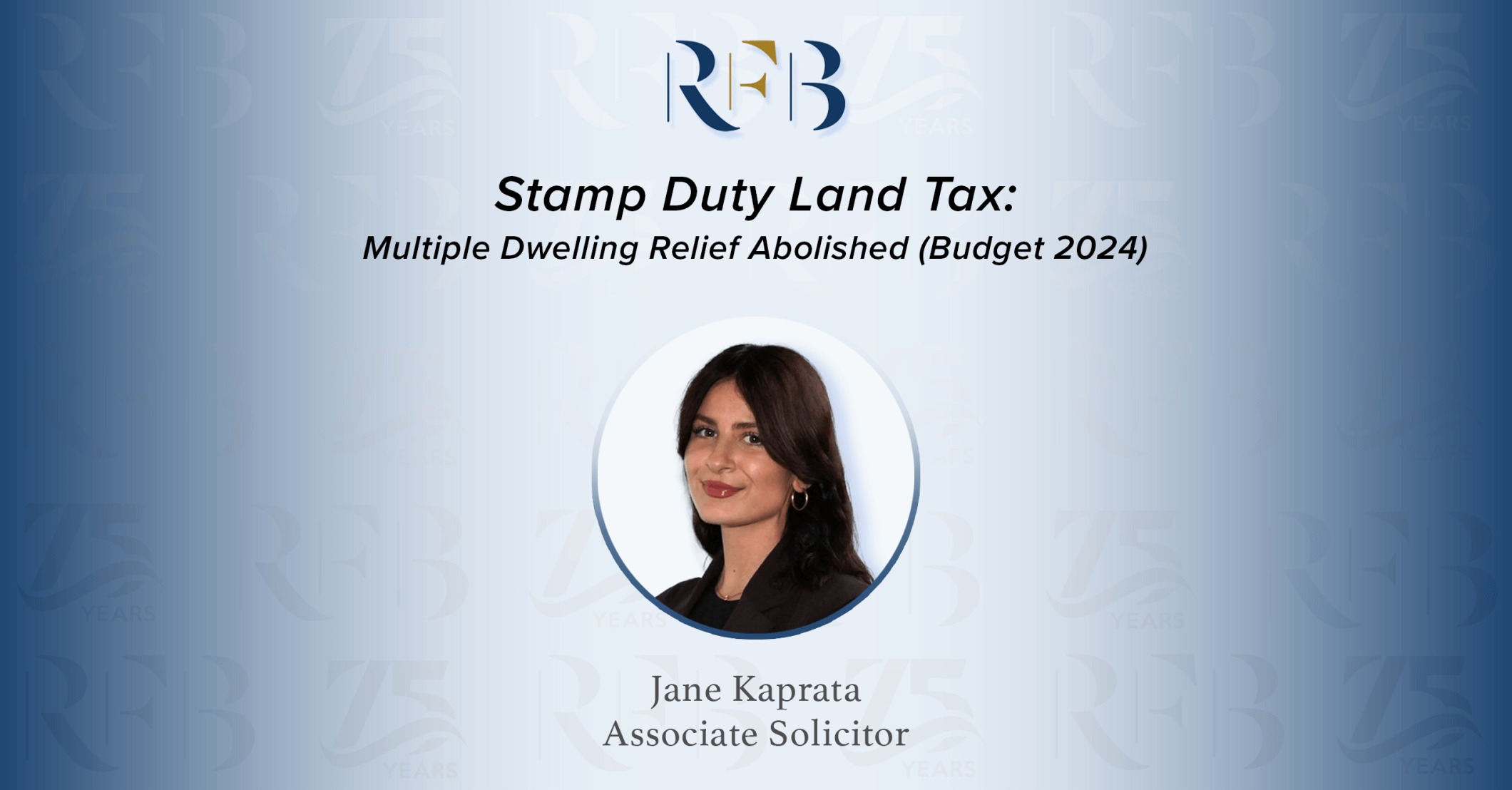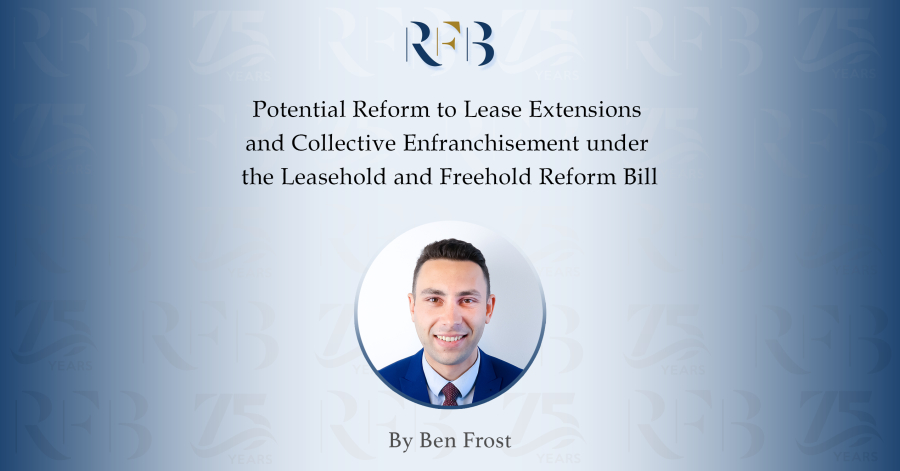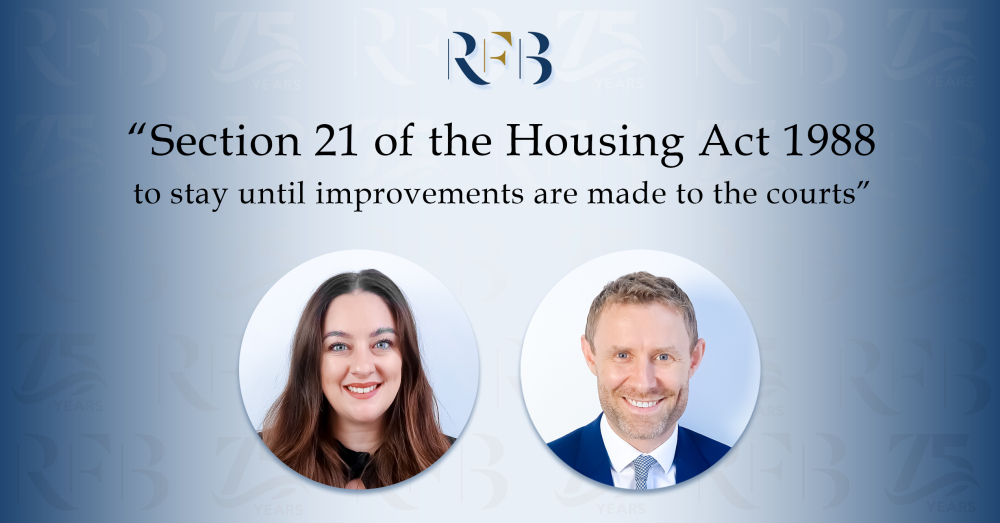The Right of First Refusal under the Landlord and Tenant Act 1987 (the “1987 Act”) grants qualifying tenants an option to purchase their home before the landlord sells it to a third party or on the open market.
The 1987 Act is a maze of rules and obligations, which are complicated and have farther-reaching implications than most people realise. If you are a landlord and fail to comply with the 1987 Act, you risk both civil and criminal sanctions, which can include a hefty fine. It is a common misconception that the 1987 Act only applies when a landlord is proposing to sell their property. In fact, a landlord’s obligations relating to the right of first refusal can apply in various scenarios (proposed disposals), including:
- If you are a landlord of a block of flats and you want to sell the freehold at auction, or to a third party.
- If you are the landlord of a mixed-use building granting a lease of the airspace.
- If you are the landlord of a residential or mixed-use building granting a deed of variation to include further premises, such as hallway space or airspace.
- If you are the landlord, and your tenant is surrendering their lease back to you.
In this Q&A article, we address six common questions about the Right of First Refusal to demystify the rights and obligations and the process, whether you are a landlord or a tenant.
This article is a general guide. Please get in touch with Juni Jamtli at j.jamtli@rfbelgal.co.uk, Victoria Huxley at v.huxley@rfblegal.co.uk, or Ben Frost at b.frost@rfblegal.co.uk if you have any queries.
1. What is the Right of First Refusal?
The Right of First Refusal is a statutory right allowing qualifying tenants to acquire the property which their landlord is proposing to sell or dispose of, instead of it going to the landlord’s proposed purchaser or up for auction. There are requirements which must be met under the 1987 Act for the right to be engaged.
Tenants cannot compel their landlord to sell their interest to them under the 1987 Act. If you are a Tenant and would like advice on acquiring your freehold under the compulsory enfranchisement process, please get in touch.
2. Does the Right of First Refusal apply to me?
The 1987 Act applies to the landlord, whether they are a freeholder or an intermediate landlord disposing of their interest in the property. Generally, where there is more than one landlord, it is only the disposal by the immediate landlord of the tenants which will be caught by the 1987 Act.
The Right of First Refusal is for the benefit of ‘qualifying tenants’, who are typically those with long leases in residential buildings containing flats, subject to certain exemptions.
If you have a 99-year lease in a residential block of flats, you are likely a qualifying tenant. This means that if your landlord disposes of their property and the right of first refusal is triggered, you will have the right to purchase the property, together with the other leaseholders in the block.
3. When will the Right of First Refusal apply?
The right may be triggered when the landlord intends to dispose of their property or a part of their property. Such disposals are not limited to sales for money only and may also apply where the landlord intends to transfer the property or part thereof for free, or for other compensation.
As a landlord or tenant, it is important to be aware that there are exceptions which are not caught by the 1987 Act called ‘exempt disposals’, such as the landlord gifting their property to a member of the landlord’s family or to a charity.
A landlord should make sure to check whether the proposed disposal is caught by the 1987 Act before taking any steps in the disposal itself. If the disposal is not exempt, then the Landlord must serve a notice pursuant to Section 5 of the 1987 Act (“Section 5 Notice”) on the qualifying tenants.
The Section 5 Notice should provide details of the property, the price, and other relevant terms of the proposed sale. If the landlord fails to include the necessary information or the information is not accurate, then the Section 5 Notice may be invalid. If you as a landlord have failed to properly serve a valid Section 5 Notice on your tenants, then you will likely not have complied with your obligations under the 1987 Act.
4. I have failed to comply with the Right of First Refusal, what can I expect?
If you are a landlord and you have failed to serve a valid Section 5 Notice, or otherwise comply with the 1987 Act, before disposing of your property then you risk facing both (1) a civil action and (2) a criminal prosecution. These sanctions are harsh and may include a hefty fine.
Not long ago, we would have been able to tell you that there had never been a criminal prosecution under the 1987 Act. This is no longer the case and we have recently seen the first case where a local housing authority issued a summons (an order to attend court) against a landlord. While this case did not lead to prosecution, it is a cautionary tale for landlords that they must comply with the 1987 Act or face prosecution and civil sanctions.
5. If I have failed to comply with the Right of First Refusal, will the property transfer still be valid?
Any disposal you, as a landlord, have made even in contravention of your obligations under the 1987 Act will remain valid. This means that an incoming purchaser will still obtain, and be able to pass on, good title to the property.
However, it is important to note that the qualifying tenants of the property may have subsequent rights against the incoming purchaser or its successor(s) to obtain the property on the same terms as the incoming purchaser. This could well be for significantly less than the asset value at that stage.
If you are an incoming purchaser of a residential block of flats or mixed-use property, you will want to ensure that you and your legal adviser representing you raise appropriate enquiries as to the position and the landlord’s compliance with their obligations before you commit to the transaction.
Prudent tenants may wish to look at the history of their landlord’s interest to determine whether they have an opportunity to acquire the property based on historic failures. The right of the qualifying tenants against a purchaser or their successor(s) may be lost where the 1987 Act no longer applies to the property or where the tenants delay in proceeding with the required notice.
6. Can my obligations under the Right of First Refusal be waived or surrendered by the tenants?
Generally, if the 1987 Act applies then the Landlord must comply with it, even if the landlord knows the tenants do not wish to acquire the Property. There is a risk that any attempted waiver or surrender of their right by signed consent or letter would not be sufficient. The parties cannot ‘opt-out’ of the rights under the 1987 Act.







